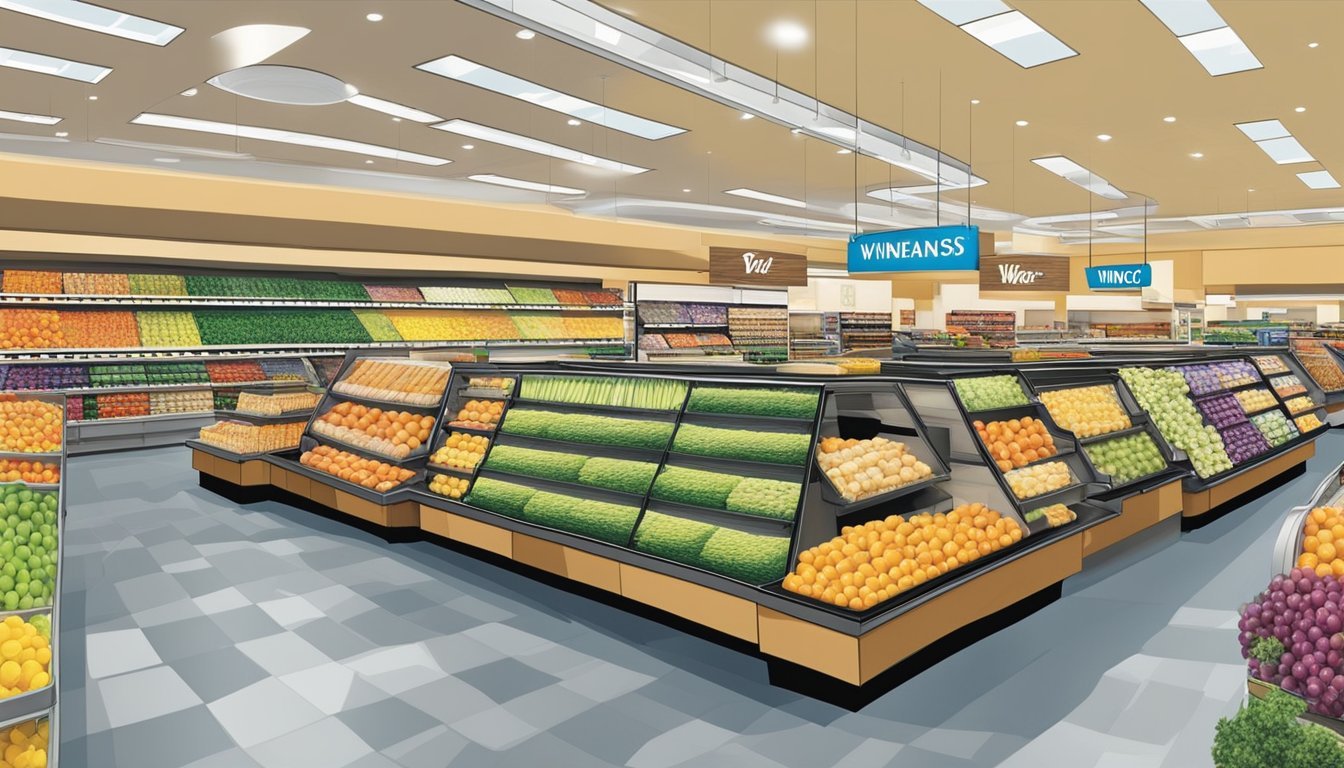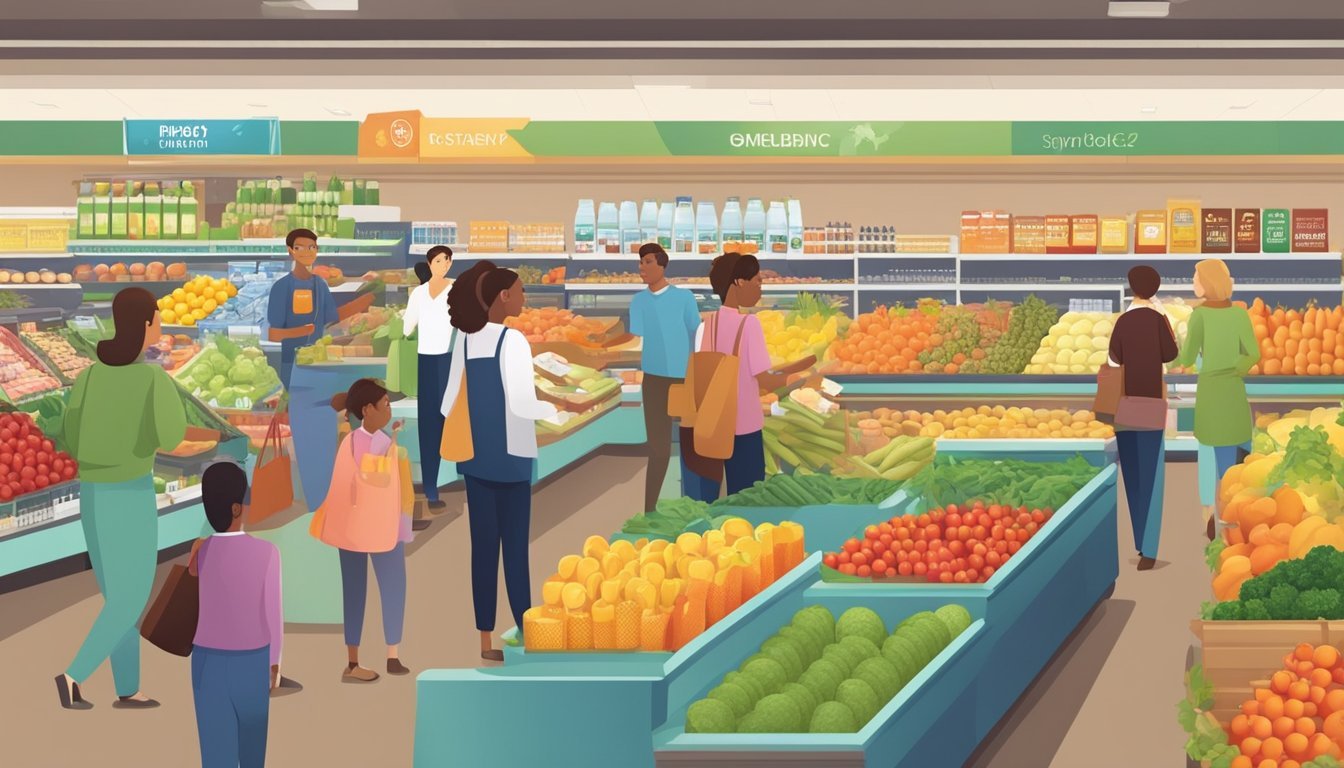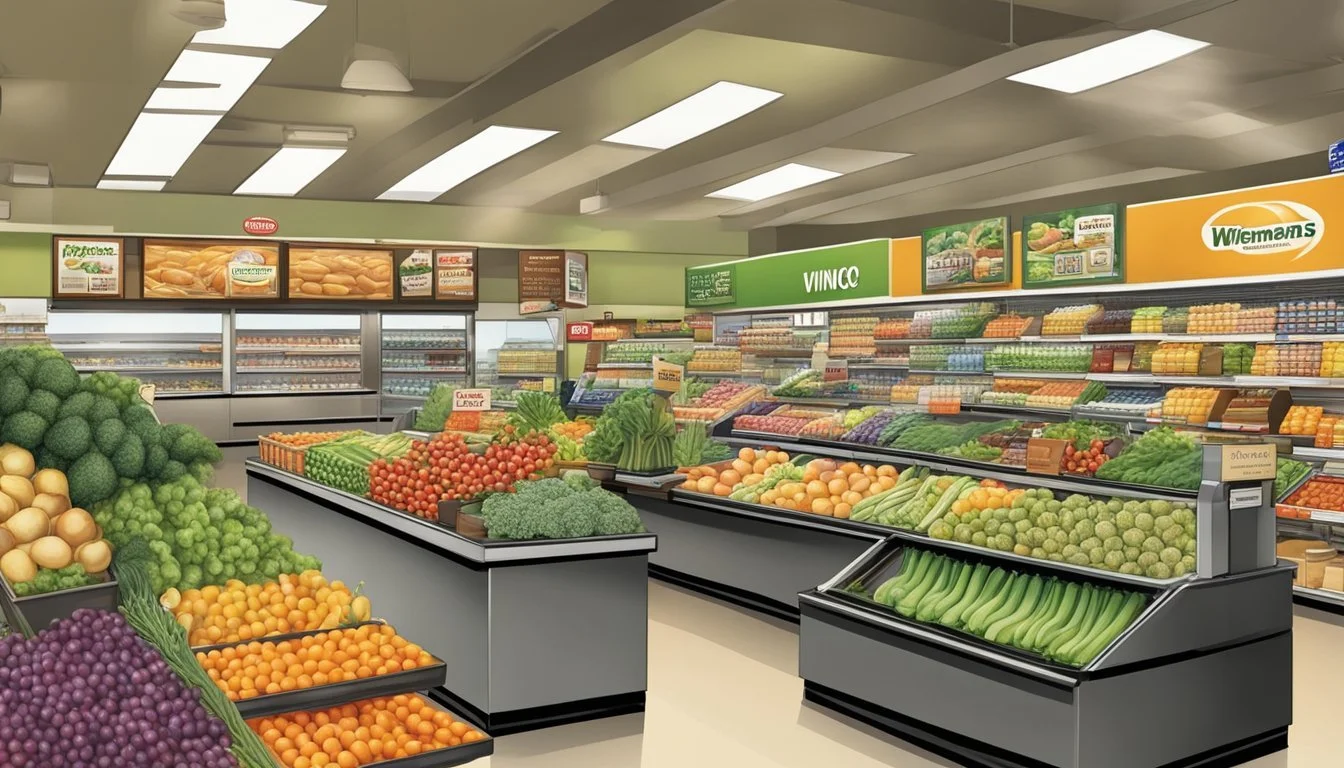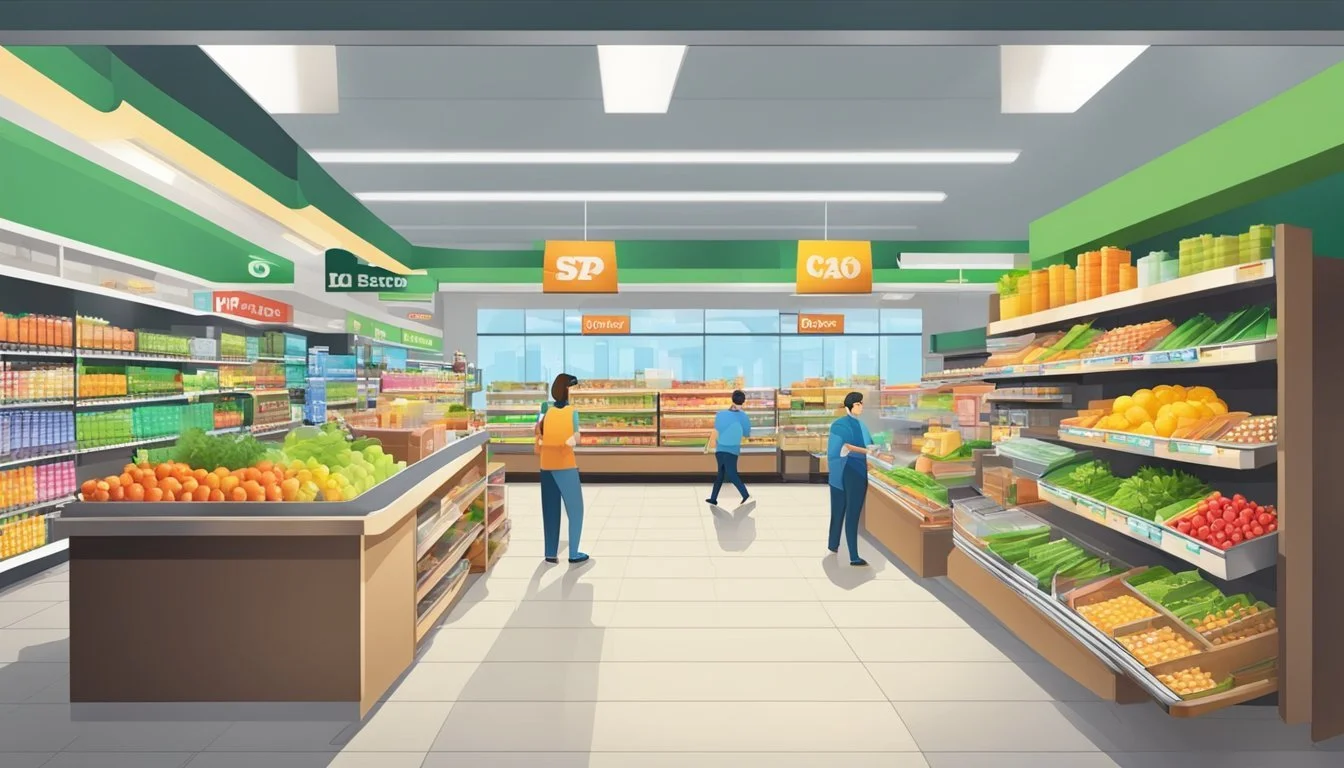Wegmans vs WinCo Foods
A Comprehensive Comparison of Price, Quality, and Selection
Wegmans and WinCo Foods represent two distinct approaches to grocery shopping in the United States. Both chains have garnered loyal customer bases, but they cater to different priorities and shopping preferences.
Wegmans excels in quality and customer service, while WinCo Foods focuses on providing the lowest possible prices. Wegmans offers a wide selection of gourmet and prepared foods, emphasizing fresh produce and high-end products. WinCo Foods, on the other hand, operates as a no-frills, warehouse-style supermarket with a focus on bulk items and discount prices.
The choice between these two grocery stores ultimately depends on individual preferences and budget constraints. Shoppers seeking a premium experience with top-notch customer service may prefer Wegmans, while those prioritizing cost savings and bulk purchasing options might find WinCo Foods more appealing.
Company Histories
Wegmans and WinCo Foods have distinct origins and growth trajectories that shaped their current positions in the grocery industry. Both companies started small and expanded over decades to become regional powerhouses, albeit with different business models and target markets.
Wegmans' Background
Wegmans Food Markets, Inc. was incorporated in 1931 in Rochester, New York. The company has its roots in the produce push cart business started by brothers Walter and John Wegman in 1916. Wegmans transformed its stores to a self-service format in 1949, adapting to changing consumer preferences.
In 1974, Wegmans diversified by acquiring the Bilt-Rite Chase-Pitkin building and garden supply stores. This move expanded their product offerings beyond groceries. The company maintained steady growth throughout the latter half of the 20th century.
Wegmans opened its first New Jersey store in 1999, marking the beginning of its expansion beyond New York state. By the early 2000s, Wegmans operated 47 supermarkets and 14 Chase-Pitkin Home and Garden stores, primarily in upstate New York.
WinCo Foods' Heritage
WinCo Foods began its journey in 1967 under the name Waremart, starting with a single store. The company's focus from the outset was on providing low-price groceries through a warehouse-style shopping experience.
WinCo experienced significant growth in the western United States. By 1999, the company rebranded from Waremart to WinCo Foods, reflecting its evolution and expansion plans.
WinCo's business model centers on being the low-price leader in every market it serves. This approach has driven the company's expansion across multiple states. As of the late 1990s and early 2000s, WinCo operated 43 stores in five western states: Idaho, Washington, Oregon, California, and Nevada.
The company's employee-owned structure sets it apart from many competitors, contributing to its unique corporate culture and operational strategy.
Store Brands and Products
Wegmans and WinCo Foods both offer their own private label products alongside national brands. These store brands provide customers with cost-effective alternatives while maintaining quality standards.
Wegmans' Signature Offerings
Wegmans' store brand products span a wide range of categories, from pantry staples to fresh produce. Their private label includes the "Wegmans" brand and "Food You Feel Good About" line.
Wegmans emphasizes organic and natural options in their store brand lineup. Many products bear the USDA Organic seal, catering to health-conscious consumers.
The "Food You Feel Good About" line excludes artificial colors, flavors, and preservatives. This appeals to shoppers seeking cleaner ingredient lists.
Wegmans also offers specialty items under their brand, such as international foods and gourmet products. These unique offerings set them apart from competitors.
WinCo Foods' Private Labels
WinCo Foods focuses on providing budget-friendly options through their store brands. Their private labels include "WinCo Foods" and "Exceptional Value" products.
The company prioritizes affordability, often pricing their store brand items significantly lower than national brands. This strategy attracts cost-conscious shoppers.
WinCo's private label covers essential grocery categories, including canned goods, dairy, and household items. While their organic selection is more limited, they do offer some organic options.
WinCo's store brand products emphasize practicality and value. They aim to provide reliable quality at competitive prices, making grocery shopping more accessible for budget-minded consumers.
Price Comparison
Wegmans and WinCo Foods employ distinct pricing strategies to attract customers. Their approaches to cost and value differ significantly, impacting shoppers' overall grocery expenses.
Wegmans' Pricing Structure
Wegmans positions itself as a premium grocery store with higher average prices. The chain focuses on quality and variety, which often translates to increased costs for shoppers.
Wegmans' private label products offer some savings compared to name brands. However, these items are typically pricier than similar store brands at discount chains.
The store's pricing on fresh produce, meats, and prepared foods tends to be higher than budget-oriented competitors. Wegmans justifies these prices through its emphasis on product quality and in-store experience.
WinCo Foods' Cost Savings
WinCo Foods prioritizes low prices as a core part of its business model. The chain consistently ranks among the cheapest grocery stores in the U.S.
WinCo achieves significant cost savings through various methods:
Bulk purchasing
No-frills store designs
Limited staff assistance
These strategies allow WinCo to offer prices 15-20% lower than traditional supermarkets on average. The store's bulk bins provide additional savings, letting customers purchase exact quantities needed.
WinCo's focus on everyday low prices extends across most departments. Even its non-food items are often cheaper than competitors.
Quality and Freshness
Wegmans and WinCo Foods differ in their approaches to quality and freshness. Both stores prioritize these aspects but implement distinct strategies to meet customer expectations.
Meat and Produce Standards
Wegmans is known for its high-quality produce and meat departments. The store sources many fruits and vegetables from local farms when possible. Their organic carrots are particularly popular among health-conscious shoppers.
Wegmans' meat department offers a wide selection of cuts, including grass-fed and organic options. The store employs trained butchers who can provide custom cuts on request.
WinCo Foods focuses on affordability while maintaining quality standards. Their produce section offers a mix of conventional and organic options. The store's bulk bins allow customers to purchase fresh fruits and vegetables in desired quantities.
WinCo's meat department provides value-oriented options. While the selection may be more limited than Wegmans, WinCo ensures freshness through frequent restocking.
Bakery and Deli Comparisons
Wegmans takes pride in its in-store bakery. Skilled bakers produce a variety of artisanal breads, pastries, and cakes daily. The store also offers custom cake decorating services for special occasions.
The Wegmans deli features a range of prepared foods, including hot meals, salads, and made-to-order sandwiches. Many items are prepared on-site using fresh ingredients.
WinCo Foods typically has a more modest bakery section. While they offer fresh-baked goods, the selection is usually smaller than Wegmans. WinCo focuses on staple items like bread, rolls, and basic desserts.
The deli at WinCo provides pre-packaged meats and cheeses. Some locations offer a limited selection of hot foods and pre-made sandwiches. WinCo's deli prioritizes quick service and budget-friendly options.
Shopping Experience
Wegmans and WinCo Foods offer distinct shopping experiences that cater to different customer preferences. Each store has its own approach to layout, convenience, and customer service.
Store Layout and Convenience
Wegmans features a spacious, well-organized layout with wide aisles and clear signage. The store is designed to create a premium shopping experience, with separate departments for bakery, deli, and prepared foods. Wegmans often includes in-store cafes and seating areas.
WinCo Foods, in contrast, utilizes a no-frills warehouse-style layout. The store focuses on efficiency, with bulk bins and large displays of discounted items. WinCo's layout prioritizes cost savings over aesthetics.
Both stores offer self-checkout options, but WinCo typically has more lanes to reduce wait times. Wegmans provides online ordering and curbside pickup services, while WinCo focuses on in-store shopping.
Customer Service Insights
Wegmans is renowned for its exceptional customer service. The store invests heavily in employee training, resulting in knowledgeable and friendly staff. Wegmans employees are often praised for going above and beyond to assist customers.
WinCo Foods takes a more hands-off approach to customer service. The store operates with fewer staff members to keep costs down. Employees are generally helpful when asked, but the focus is on efficiency rather than personalized attention.
Wegmans offers cooking demonstrations and product sampling, enhancing the shopping experience. WinCo, on the other hand, keeps displays simple and functional to maintain its low-price model.
Consumer Perception and Reviews
Consumer ratings and surveys provide valuable insights into how shoppers view Wegmans and WinCo Foods. Both chains have cultivated loyal customer bases, but differences emerge in specific areas of satisfaction.
Wegmans' Customer Satisfaction
Wegmans consistently ranks highly in consumer surveys. Consumer Reports placed Wegmans near the top of its supermarket rankings. Shoppers praise the store's wide selection of high-quality products and excellent customer service.
Wegmans receives positive feedback for its prepared foods section and in-store dining options. Customers appreciate the variety of organic and specialty items available.
The store's layout and cleanliness also earn high marks from patrons. Many reviewers note the knowledgeable and friendly staff as a key factor in their positive experiences.
WinCo Foods' Shopper Approval
WinCo Foods garners strong customer approval for its low prices and bulk shopping options. The employee-owned company ranks well in surveys focused on value and affordability.
Shoppers appreciate WinCo's no-frills approach, which allows for significant cost savings. The store's bulk bins are particularly popular among budget-conscious consumers.
WinCo's 24-hour operations in many locations are viewed favorably by customers with non-traditional schedules. Reviews often highlight the store's fresh produce and meat departments as offering good quality at competitive prices.
Some surveys indicate slightly lower satisfaction with WinCo's customer service compared to Wegmans, but shoppers generally find staff to be helpful and efficient.
Business Practices and Ethics
Wegmans and WinCo Foods demonstrate contrasting approaches to corporate responsibility and sustainability. Both companies prioritize ethical practices but differ in their specific focus areas and implementation strategies.
Corporate Responsibility
Wegmans has gained recognition for its ethical business practices. The company has been named one of the World's Most Ethical Companies by Ethisphere Magazine multiple times. This acknowledgment reflects Wegmans' commitment to integrity and values-driven leadership.
WinCo Foods, while not as widely recognized for ethics awards, emphasizes employee ownership as a core aspect of its corporate responsibility. The company operates as an employee-owned business, giving workers a stake in the company's success.
Wegmans is known for its community involvement and charitable initiatives. The company supports local food banks and education programs. WinCo Foods focuses on providing affordable groceries to communities, particularly in areas with limited access to fresh food.
Animal Welfare and Sustainability
Wegmans has implemented animal welfare policies for its suppliers. The company requires humane treatment of animals and works with farmers to improve living conditions for livestock. Wegmans also offers a range of organic and sustainably sourced products.
WinCo Foods has made efforts to reduce its environmental impact. The company focuses on energy efficiency in its stores and distribution centers. WinCo also implements recycling programs and works to minimize food waste.
Both retailers have expanded their organic and locally sourced product offerings in recent years. Wegmans has a more extensive selection of organic items, while WinCo Foods aims to provide organic options at lower price points.
Community and Store Locations
Wegmans and WinCo Foods have distinct geographic footprints and approaches to community engagement. Their store locations and local involvement strategies shape their relationships with customers across different regions.
National Presence
Wegmans operates 107 stores across seven states in the Northeast and Mid-Atlantic regions. The chain has a strong presence in New York, Pennsylvania, New Jersey, Virginia, Maryland, Massachusetts, and North Carolina. WinCo Foods has a broader geographical reach with 138 stores spread across 10 states, primarily in the Western and Southwestern United States. These include Washington, Idaho, California, Nevada, Oregon, Utah, Arizona, Oklahoma, Texas, and Montana.
Wegmans tends to focus on urban and suburban areas, often in more affluent neighborhoods. WinCo Foods targets a wider range of locations, including smaller cities and towns.
Local Community Involvement
Both grocers emphasize community engagement, but with different approaches. Wegmans is known for its "Eat Well, Live Well" initiative, which promotes healthy eating and active lifestyles in local communities. The company also supports food banks and educational programs.
WinCo Foods takes pride in its employee-owned structure, which fosters a sense of community within the stores. The company contributes to local charities and food banks in the areas it serves.
Wegmans often partners with local farmers and producers, showcasing regional specialties in its stores. This practice strengthens ties with local communities and supports regional economies.
Additional Services and Departments
Wegmans and WinCo Foods offer distinct additional services and specialty departments beyond basic groceries. These extras can significantly enhance the shopping experience and provide added value for customers.
Prepared Foods and Hot Bar
Wegmans excels in prepared foods, offering an extensive hot bar with diverse meal options. Their hot bar features a rotating menu of entrees, sides, and international cuisines. Customers can find freshly made salads, sandwiches, and sushi. Wegmans also provides a pizza station and sub shop.
WinCo Foods has a more limited prepared foods section. They offer a small hot deli with rotisserie chickens and basic sides. Some WinCo locations have a pizza counter where customers can purchase whole pizzas or slices.
Specialty Departments
Wegmans boasts impressive specialty departments. Their cheese section is renowned, featuring artisanal and imported varieties. The bakery department produces fresh bread, pastries, and custom cakes. Wegmans' meat department offers high-quality cuts and specialty items like dry-aged steaks.
WinCo Foods focuses on bulk foods as a specialty. Their expansive bulk section includes nuts, grains, snacks, and candy. This allows customers to purchase exact quantities needed at lower prices. WinCo's meat department provides standard cuts at competitive prices, though the selection may be more limited than Wegmans.
Marketing and Branding Strategies
Wegmans and WinCo Foods employ distinct marketing approaches and branding techniques to attract and retain customers. Their strategies differ in advertising methods, visual identity, and product packaging.
Advertising Techniques
Wegmans focuses on building a strong emotional connection with customers through its advertising. The company highlights its family-owned heritage and commitment to quality in TV commercials and print ads. Wegmans also leverages social media platforms to share recipes, cooking tips, and stories about local suppliers.
WinCo Foods takes a more practical approach, emphasizing its low prices and employee-owned business model. The company relies heavily on word-of-mouth marketing and limited traditional advertising. WinCo's primary marketing message centers on its ability to offer significant savings to budget-conscious shoppers.
Branding and Packaging
Wegmans has developed a premium brand image associated with high-quality products and exceptional customer service. The company's logo features a stylized "W" in red, conveying a sense of warmth and approachability. Wegmans' private label products often have sophisticated packaging designs that rival national brands.
WinCo Foods maintains a no-frills brand identity aligned with its discount pricing strategy. The company's logo is simple and utilitarian, featuring bold blue lettering. WinCo's store-brand products typically have basic packaging with minimal design elements, reinforcing the message of value and affordability.
Competitive Comparison
Wegmans and WinCo Foods each face unique competition in the grocery market. Both chains have distinct strengths and weaknesses when compared to major national retailers and regional budget-focused stores.
Wegmans vs Major Chains
Wegmans stands out against national chains like Kroger and Safeway for its emphasis on quality and customer experience. Its produce section often surpasses competitors in freshness and variety. Wegmans' prepared foods are highly regarded, rivaling even Whole Foods in quality and selection.
In pricing, Wegmans is competitive with mid-range chains like Publix. Its store brand offers good value, though not always the lowest prices. Wegmans' larger stores provide more space for specialty items and in-store dining, setting it apart from traditional supermarkets.
Customer service at Wegmans consistently ranks high in consumer surveys. This gives it an edge over larger chains that may struggle with personalized attention. However, Wegmans has fewer locations than national competitors, limiting its reach.
WinCo Foods vs Budget Grocers
WinCo Foods competes directly with discount chains like Aldi and Walmart in the budget grocery segment. Its employee-owned model allows for lower overhead costs, translating to competitive pricing on many items.
WinCo's bulk food section is a key differentiator, offering savings on pantry staples. This feature sets it apart from Aldi's more limited selection. However, Aldi often beats WinCo on some packaged goods prices.
Compared to Walmart, WinCo typically offers lower prices on groceries but a smaller selection of non-food items. WinCo's no-frills approach means fewer services than some competitors. It doesn't offer bagging or accept credit cards to keep costs down.
WinCo's fresh produce prices are often lower than other budget chains, though selection may vary. Its meat department is generally well-regarded for balancing quality and affordability.







